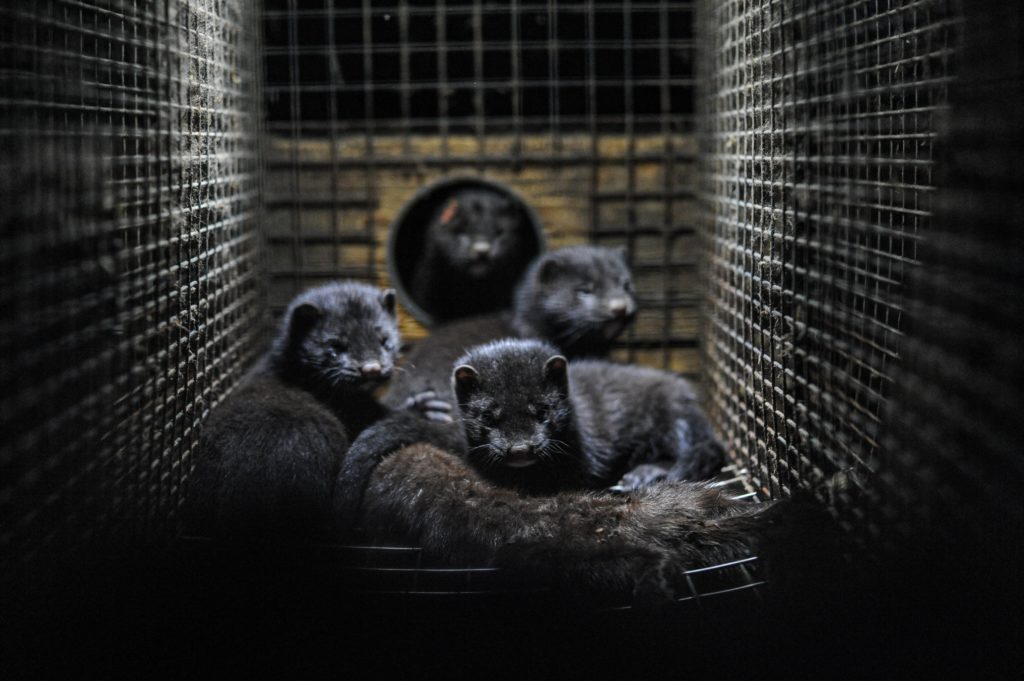Back in April, PETA issued a statement condemning the use of exotic animals for their skins within the fashion industry citing their link with COVID-19. The “fur and exotic skins industries create breeding grounds for pathogens like the novel coronavirus,” warned PETA. Animals are “confined and slaughtered in filthy conditions—just like animals in wet markets,” the statement continues on to say.

If you’ve ever seen how animals in the fur and exotic skins industry are kept—in small cages, the animals one on top of the other or severely overcrowded in larger areas—it’s kind of a no-brainer to understand how quickly diseases can spread from one infected animal to the other, and eventually make their way to humans. It’s always been a crucial animal-rights issue, but despite the outbreak of other zoonotic diseases (HIV, swine flu, avian flu, ebola etc), the general public didn’t consider fur and exotic skin farms a threat to their health, until now.
The notion of this threat comes from the theory that COVID-19 originated in a “wet market” in Wuhan, China. Although it should be noted there are other theories about where the novel coronavirus originated, and what exact animal it came from. Scientists don’t have all the facts as of yet. According to the World Health Organization, “although the virus is believed to be ancestrally linked to bats, its origin and intermediate host(s) of SARS-CoV-2 (the virus that causes COVID-19) have not yet been identified.”

“COVID-19 is just the latest in a long line of diseases linked to animal exploitation that have caused many of the world’s major outbreaks since the 1900s,” reports Surge, a grassroots animal rights organization. It’s old news now that animals kept for human consumption are often subject to disgusting living environments. And even those intended for the newest fashion collection are too. Mink farms often keep injured animals in the same cages as others who are dying and deceased.
In recent news, several mink farms across the world found COVID-19 present within the animals, and in Copenhagen’s case, have ordered the killing of the farm’s 17 million minks, as they contain a mutation of the infection that has made it’s way to 12 humans in result. PETA also told Plant Based News that “an unknown but potentially significant number of cases of human diseases are linked to farms because visitors acquire infections on site.”

But with all of this in mind, will change happen? It’s refreshing to hear that quite a few designers have actually pledged to stop using certain furs and skins. Other changes in fashion are happening too. Here’s a list of some positive changes in fashion that have happened this year:
- Stockholm fashion week was free of furs and exotic skins
- Tommy Hilfiger and Calvin Klein have banned exotic skins from their designs
- The Netherlands has moved to permanently close down all mink farms in the country.
- Nordstrom will no longer carry fur or exotic animal skins
- Juicy Couture to launch vegan loungewear collection
- France pledges to close all fur farms by 2025
- Prada bans kangaroo leather
- Marks and Spencer, Esprit, Gap Inc—which owns Banana Republic, Athleta among others—and H&M Group to ditch alpaca wool
- Mulberry bans exotic skins
- Canada Goose to ditch “virgin fur” and use “recycled fur” instead
- Plus numerous other companies adding vegan collections and re-making originals with vegan materials, like the iconic Adidas ‘Superstar’ shoe.

The above changes are things organizations like PETA and Surge have been fighting for a long time. Steady pressure on big brands have finally made a difference, and the demand for cruelty free fashion is growing rapidly.
In terms of changes due to COVID-19, our entire lives have been radically altered due the virus. That means we need to radically change our behaviors in order to make things better, so something like this doesn’t happen again. It’s uplifting to see that there is change happening, but it’s sad it took something like a pandemic to make it happen.
Related: What Scientists Propose To Prevent Future Zoonotic Diseases
Get more like this—Sign up for our daily inspirational newsletter for exclusive content
__
Photo: Spiske, Jost, Trollinho, McArthur; Unsplash.




